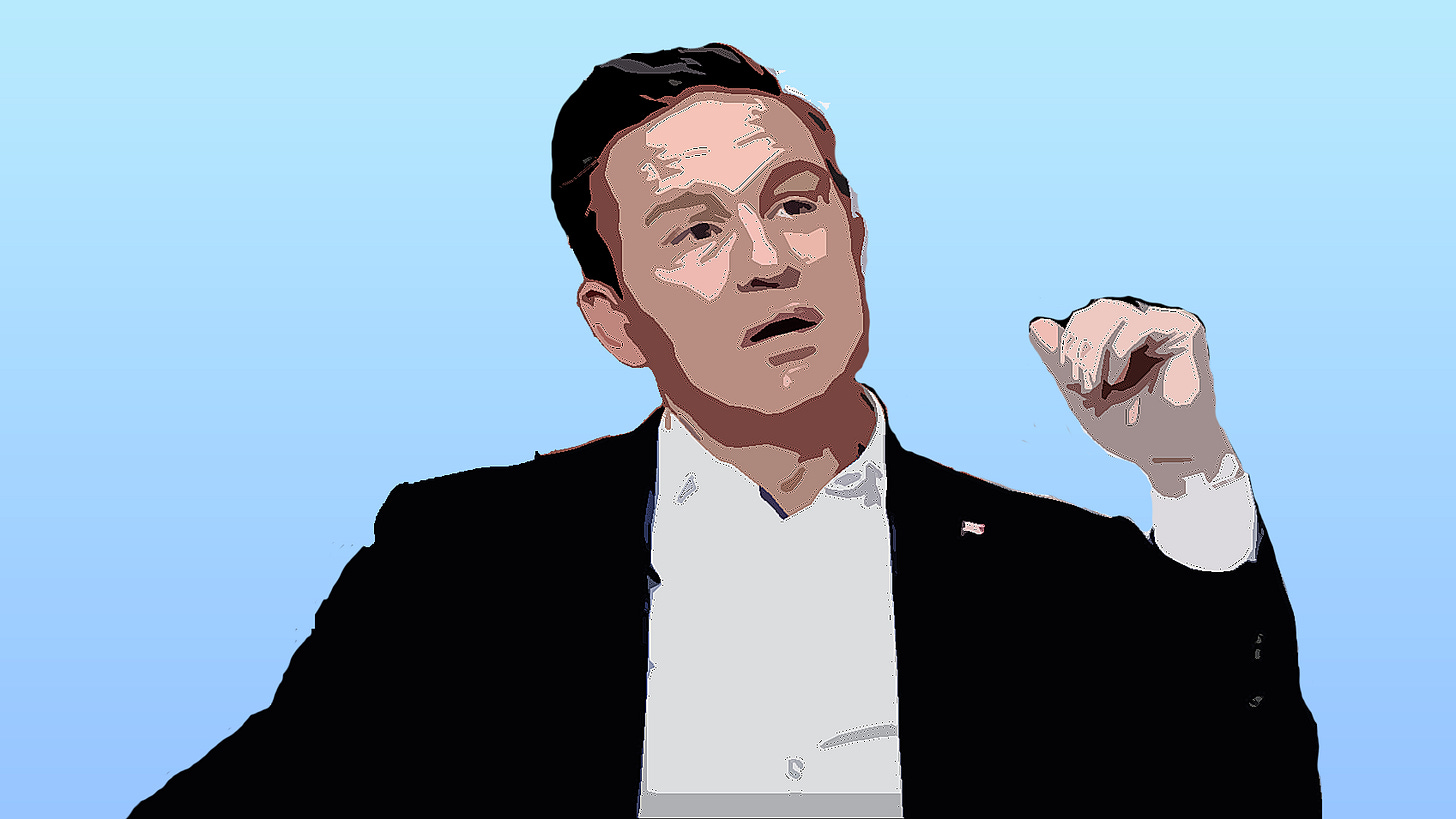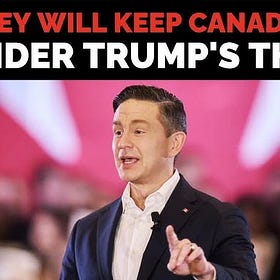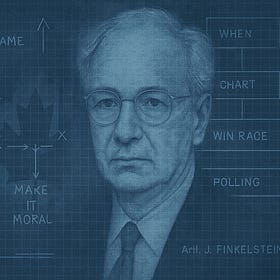Opinion: Poilievre Can't Force an Election, So He's Forcing a Spectacle
Canada needs a loyal opposition, not a performance artist.
What an exhausting week.
Canadians could hardly keep up with the whirlwind of headlines, interviews, and reactions that followed Pierre Poilievre’s latest media blitz. Yet beneath the noise, a pattern reveals itself—a politician who understands how outrage fuels attention, and how attention converts into power.
Here’s the thing. Poilievre can’t actually do anything right now.
Six months ago, he didn’t just lose the election—he lost his own seat, a riding he’d held for two decades, and after scrambling back into Parliament through an August by-election, he now leads a Conservative caucus that’s nowhere near power. Carney governs with 169 seats, just three short of a majority in the 343-seat House. The NDP—leaderless and broke after their own leader lost his seat—holds seven votes. The Bloc has twenty-two. Either could keep Carney in power well past the next budget.
Poilievre has no leverage, no votes that matter, and no election on the horizon.
So instead of building policy, he’s building outrage—spending the past month in performative anger about Carney and Trump, but offering no alternative strategy of his own.
When you can’t propose solutions, you perform problems.
When you can’t change policy, you change the channel.
Earlier in the week, Poilievre’s decision to appear on a niche right‑wing YouTube channel, rather than a mainstream outlet like CBC, raised a few eyebrows. Why would a man who could command airtime anywhere choose a platform few had heard of?
Because it was deliberate.
The setting was controlled, the audience pre‑primed, and the outrage guaranteed to spread. Northern Perspective may seem like an obscure youTube channel to casual observers, but with nearly two hundred thousand subscribers and more than a hundred million total views, it is a powerful, hyper‑targeted conservative platform with an active, engaged audience. In other words, this was a controlled atomic bomb drop into an ecosystem built for amplification.
What we are actually witnessing is a calculated political kayfabe operation.
Sidebar: What Is Kayfabe?
In professional wrestling, kayfabe refers to the art of maintaining the illusion that staged rivalries and outcomes are real. The term likely derives from carnival slang—possibly Pig Latin for “fake”—used to remind performers to protect the act and stay in character around outsiders.
Wrestlers historically lived their storylines both in and out of the ring to keep audiences emotionally invested.
In politics, kayfabe describes a similar dynamic: manufactured conflict presented as authentic. Politicians perform outrage and rivalry to hold public attention, while the theatrical opposition itself becomes essential to sustaining engagement and power.
To be clear: performative politics exists across the political spectrum, but Poilievre has refined the practice into a governing philosophy, not just a campaign tactic. He is the master of the outrage cycle, performing conflict with total conviction. The line between authenticity and theatre is no longer visible—and that’s the point.
He’s learned that in modern politics, outrage spreads faster than reason, and emotion outpaces empathy.
Views, Rage, Repeat: How the Conservative Party Became a Media Powerhouse
Have you ever found yourself arguing with a Conservative online and felt like they were living in an alternate universe? Like no matter how many facts you offer, it’s as if you’re speaking entirely different languages? That’s not a coincidence. It’s by design.
But here’s what gets lost in the performance: while Poilievre manufactures outrage about imaginary failures, someone else is actually governing.
And while Canadians argue over his latest provocation, productivity stagnates, housing costs spiral, and our economic competitiveness erodes. The kayfabe isn’t just annoying—it’s expensive. Every news cycle spent dissecting outrage is a news cycle not spent solving the economic crisis unfolding in real time.
Poilievre didn’t invent this method; he inherited it. As a young staffer in Stockwell Day’s office, he was immersed in the ideology of the Calgary School, a conservative intellectual network that married free‑market theory with deep suspicion of institutions. Over the years, he absorbed lessons from mentors like Stephen Harper, who perfected message control, and from strategists steeped in Finkelthink, the art of emotional polarization honed by Arthur Finkelstein and imported through global conservative networks.
Through these schools, Poilievre learned both the philosophy and the performance of power: from Calgary, the quasi‑economic worldview that equates skepticism with virtue; from Finkelthink, the strategy of perpetual outrage and villain creation; and from Harper, the discipline of message control pushed to its extreme. The result is a seamless fusion of ideology, communication, and control—a campaign that never ends, an outrage machine that feeds itself.
But the problem with this system is that it’s fundamentally corrupted by polling for power. When every decision is made to maximize outrage metrics, politics stops being about helping Canadians and becomes only about dominating the conversation.
The Republican Ghost of the Conservative Party of Canada
Prologue: Once you see the wiring, you can’t unsee it
The Calgary school’s suspicion of institutions that once drove reform has calcified into contempt for accountability. What began as a school of governance has turned into a business of emotion—and Canadians are paying the price in policy paralysis while real economic challenges compound.
This approach puts genuine policy conservatives in an impossible position—defend the performance or be labeled disloyal. And it puts Canada in an even worse position: an opposition leader so deep in the kayfabe that he’s chasing ratings like a content creator instead of preparing to govern. You’d think we’d stumbled into a TikTok serial instead of watching a PM-in-waiting, and as a result, Canadians aren’t waiting for his leadership—they’re waiting for him to leave.
The Canadian path to power should be rooted in pragmatism and compassion, not perpetual conflict. Politics is supposed to serve the country, not consume it.
We can’t outshout the circus—but we can outthink it. That means asking harder questions: not what makes us angry, but who benefits when we’re angry. Not what divides us, but what we actually need: housing policy, not housing theatre. Climate solutions, not climate spectacle. Healthcare that works, not healthcare that polls.
And we need to pay attention to what happens when performance politics becomes governing. South of the border, we’re watching that experiment in real time—a dumpster fire of chaos where kayfabe replaced competence. That’s not a model to emulate; it’s a warning to heed.
Canada needs a loyal opposition—loyal to the country, not just opposed to the government. One that offers genuine alternatives, not just amplified grievances. The Conservative Party has the talent and the tradition to provide that leadership. But as long as performance trumps policy, as long as engagement metrics matter more than governance, loyalty to Canada gets lost in loyalty to the brand. And if they ever find a leader who can break through the theatre to offer something real—the kind of renewal Carney demonstrated for the Liberals—Canadian politics will be better for it. Until then, we’re stuck with the spectacle.
Canadians have always survived by working together to endure harsh winters. This one is economic: inflation eating wages, housing costs crushing families, productivity falling behind our competitors. And it’s made worse by the instability next door—a trading partner whose government lurches from crisis to manufactured crisis. While the circus performs, the winter deepens. Cooperation, not division, will determine whether we come through it stronger or colder than before.
If we’re going to demand better from our opposition, we need to hold our government to the same standard. That’s why Northern Variables has launched a new accountability tool that tracks every Liberal campaign promise against real progress.
No spin, no spectacle—just measurable results on housing, healthcare, climate, and the issues that matter. Because accountability means tracking what they do, not just what they say.






His combative form of debates and poor adaptation of American political tactics are not very effective when he is up against a competent politician or Prime Minister. He is also a sign that Canadians need to move away from American influences, especially in the areas of political and civil culture.